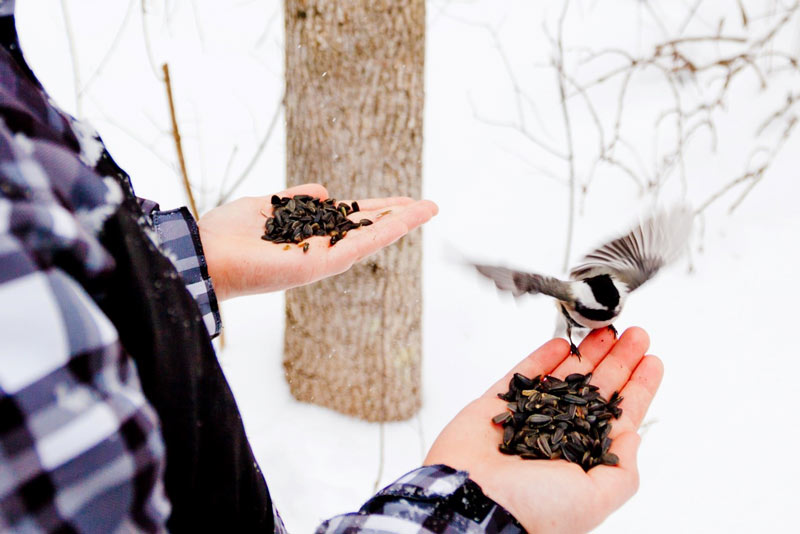Bird watching in Durham Region

By: Will McGuirk
A good book, good coffee and the sound of birdsong. Is there anything better? Durham Region has long been a magnet for birdwatchers—the Lake Ontario shoreline has been a stopover for the spring and fall migration for many different species flying south and north again.
Local Oshawa author, Steve Burrows, knows this well. In his series of “Birder Murder Mystery” novels, his Detective, Domenic Jejeune, is an avid birder. In Burrows’ ‘A Siege of Bitterns,’ his first in the now seven-book series, Detective Jejeune mentions Thickson Point in Whitby as a keen observation point.
Thickson Point is also a favourite spot for artist Paul Riss, known as the Punk Birder. Riss has more than 240 bird names tattooed on his body—that’s the Latin names!—and was the subject of a CBC documentary, ‘Rare Bird Alert.’
“I spent a lot of time birding Thickson Woods. It's a special little spot in that it has some of the last old growth trees on the north shore of Lake Ontario. It’s what we often call a migrant trap. I’m not really sure why a spot becomes a migrant trap, but as birds migrate north, after crossing the lake, they need a place to land and eat right away because after a full night of flying their fat reserves are often very low. If they don’t eat right away, they can die. Somebody once explained it to me like this: “birds eat and eat and eat, becoming obese versions of themselves prior to flying overnight. When they land the next morning, they’re so thin and nearly starving, having used up all the fat energy over their journey. So, they must eat right away. It’s the reason they’re so easy to see because they’re often not at all bothered by our presence when they’re completely focused on feeding. They come down low in the trees and feed non-stop, ignoring us and giving us a unique opportunity to observe them at close range. The rarest bird I’ve ever seen in Durham was a Smew, a Eurasian duck species that somehow found its way to Whitby Harbour in 2011.”
Riss was raised in Durham Region and first discovered his love of birds with his dad.
“My father actually got me into birding by accident almost. He was just looking for a way that we could spend more time together and we went to a forest with some birdseed and fed birds in the hand. This place, Cranberry Marsh in Whitby, was known for birds feeding from the hand. The instant the first Black-capped Chickadee landed on my hand, I was hooked for life.”
“I used to live in Orono,” Riss says, “and there were great spots near my home there as well, but Durham’s human population has grown so much that some places I used to hang out and be in the forest or fields with birds are now so developed. It’s one of the reasons I want more people to get into birding because when you fall in love with birds, you want to protect them and become so much more focused on the natural environment and protecting it. You can’t see birds if there’s no suitable habitat.”
Protecting habitat, not just in Durham but globally, is one of the reasons former roommates Soni and Doran joined forces to open Aves Coffee Company, an ethically sourced coffee shop in downtown Oshawa.
“We met serendipitously as roommates and quickly discovered our mutual passion for nature, community and local food. We wanted to start something that contributed something good to the community, created jobs and a place space, and promoted environmental sustainability. Aves was formed from our love of birds, community and very good coffee.”
Aves opened in December 2021 and offered a selection of limited and premium blends. The different coffees are named for birds: King Rail Peru; Yellow Breasted Chat El Salvador; Acadian Flycatcher; and Barn Owl Espresso Dark Blend.
During winter, as we look down while walking snow covered trails in Durham Region, take the time to look up too. Observe nature’s bounty above with a warm Aves coffee in hand and, as the nights get darker, spend time with Detective Domenic Jejeune and ready yourself for the return of the birds in the spring. If you’re looking for Burrows’ books, search out one of Canada’s finest independent bookstores, Blue Heron Books, also named for a bird—the Blue Heron—in downtown Uxbridge.
Comments
Login to Post a CommentNo login? Please enter your details below to continue.
Contact Us







